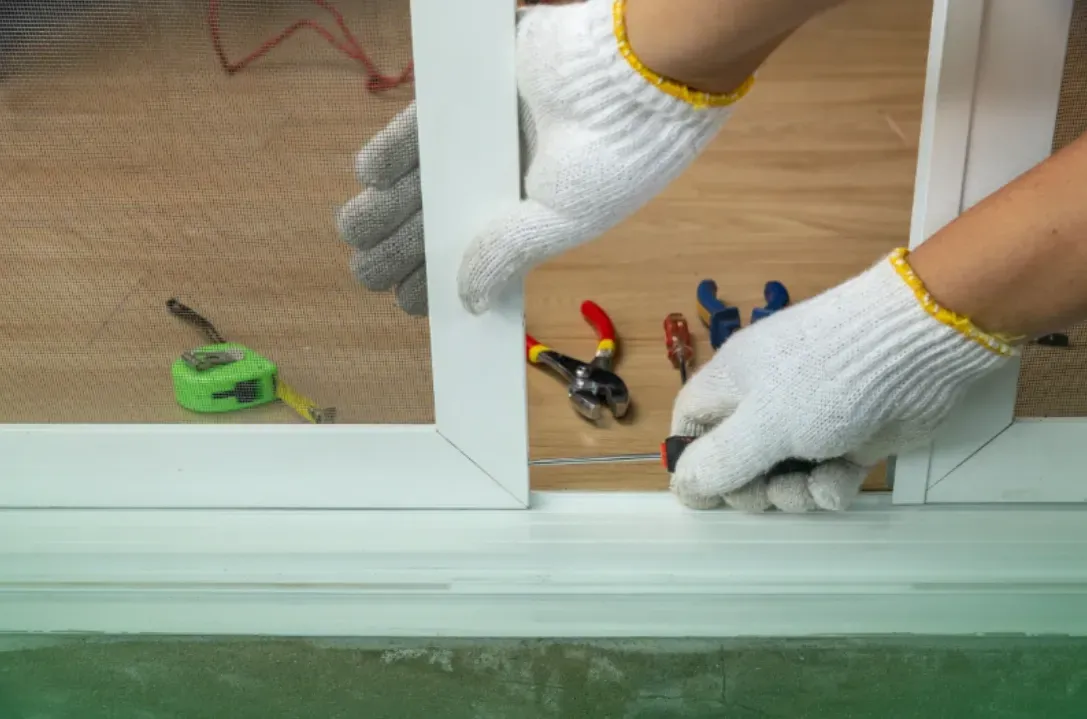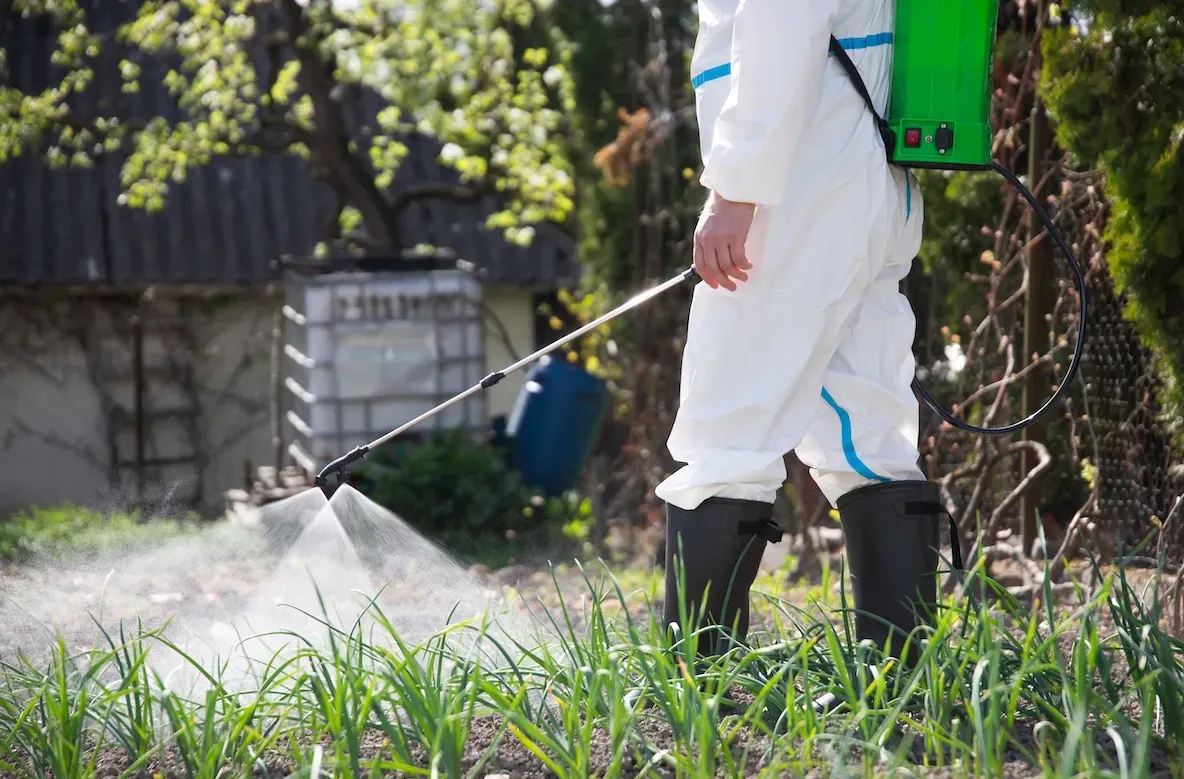Protecting Your Property from Pests: A Complete Guide to Pest Control in India

By
Shrusti Naik
Posted on September 16, 2025. 10 mins

Protecting Your Property from Pests: A Complete Guide to Pest Control

Pests, be it insects, rodents or other vermin, are not just annoying nuisances. In India, they pose serious threats to health, property, agriculture and hygiene. With rising urbanisation, climate shifts, and increased awareness of food safety and home maintenance, effective pest control management has become essential. This article gives you a well-rounded, research-backed guide on insect control methods, physical and chemical treatments, regulations, organic options, and best practices so that you can protect your property and health.
Key Stats (India, Recent)
- India’s pest control market was worth USD 1.8 billion in 2024, projected to grow to USD 3.1 billion by 2033 (CAGR ~6%).
- Insect pest control segment alone stood at about USD 1.34 billion in 2023, with expected growth due to increased demand in agriculture and urban hygiene.
- India’s pest control products market was valued at about USD 553.9 million in 2024, expected to reach ~USD 1,504.4 million by 2033.
- In the Mumbai-Thane-Raigad region, there are just ~414 licensed pest control agencies in Mumbai, 257 in Thane, 135 in Raigad, far fewer than needed, which leads to rise of unlicensed operators, especially around monsoon. Might as well take a look at The Hidden Dangers of Dampness and Mold: How to Identify, Prevent, and Fix the Problem
Understanding the Regulatory Environment
Knowing the law is crucial to ensure safe application of pest control methods and select a reliable service.
- The Insecticides Act, 1968 and Insecticides Rules, 1971 are the primary laws that regulate all pesticides / insecticides in India. They cover registration, import, manufacture, sale, labelling, transport. Any insecticide must be registered with the Central Insecticides Board & Registration Committee (CIB & RC) before use.
- The Pesticide Management Bill, 2020, introduced to replace / modernise the Insecticides Act, proposes greater oversight, compensation for poisoning, better regulation of biological pesticides. It's not fully in force yet but is under legislative consideration.
- The Food Safety and Standards Authority of India (FSSAI) issues guidance: for food-handling premises, pest control measures are mandatory under food safety regulation. Disinfectants, pest control agents used must meet maximum residue limits.
- Local licensing matters: In places like the Mumbai-Thane region, agriculture departments warn against use of unlicensed agencies. Licensed firms are expected to have certified staff, possess chemical purchase certificates, and renew licences annually.
Also read
Types of Pest Control Methods
There are several methods of pest control. Some are physical, others chemical or biological. Below is a comparison:
| Method | Description | Pros | Cons / Risks |
|---|---|---|---|
| Physical / Mechanical Methods | Using traps, barriers, screens, heat, or cold; structural repairs to block entry points. | Low chemical exposure; often safer for long term; eco-friendly; immediate action. | May be labour-intensive; may not handle heavy infestation alone; less effective against pests deep in structures. |
| Chemical Methods | Use of synthetic insecticides, rodenticides, sprays, aerosols. | Fast knock-down of pest populations; wide availability; scalable. | Health risks if misused; resistance development; regulatory restrictions; risk of residues. |
| Biological / Organic Methods | Use of natural predators, neem oil, microbial pesticides, botanical extracts; integrated pest management (IPM). | Environmentally safer; good for sustainable practice; minimal residues; fits organic farming. | Slower effect; may require more knowledge; may cost more; not all methods practical indoors. |
Take a look at
How to Choose the Right Method for Different Settings
| Setting | Recommended Methods | Key Points to Check |
|---|---|---|
| Residential Homes / Apartments | Physical control (sealing gaps, traps), selective chemical sprays in crevices, organic repellents (e.g. neem), bed bug or termite treatment when needed. | Ensure products used are household-grade, registered; hire licensed service; avoid widespread spraying affecting indoors heavily. |
| Food Storage / Processing / Kitchens | Strict compliance with FSSAI; use of approved chemicals with known residue limits; routine monitoring; physical traps for rodents & insects. | Check chemical labels, dosage, application methods; maintain hygiene; store chemicals safely. |
| Agricultural / Backyard Gardening | Integrated Pest Management (IPM): use biologicals, crop rotation, pheromone traps; only apply chemicals when threshold crossed; use organic pesticides where possible. | Avoid banned / restricted pesticides; follow dosage; monitor pest levels; ensure safety for farm workers. |
Best Practices & Safety Measures
- Check credentials of pest control service: License, chemical purchase certificates, staff training. Unlicensed operators may use dangerous or banned substances.
- Read labels and understand active ingredients: The Insecticides Act mandates labels include hazard signs, target pests, dosage, safety instructions.
- Use PPE (personal protective equipment) when applying chemical agents—gloves, mask, protective clothing.
- Ventilation after spraying; restrict access until safe per label instructions.
- Follow monitoring, not indiscriminate spraying: For example, use traps or sensors to see when pest levels exceed thresholds rather than routine blanket spraying.
- Dispose of chemical containers properly, per local rules; avoid dumping in drains or open land.
- Use organic/biological methods where possible to reduce chemical load and risk to environment & health.
Trends & Innovations in Indian Pest Control
- Growing demand for organic pesticides in agriculture, driven by consumer awareness and export requirements. :contentReference[oaicite:10]{index=10}
- Integrated pest monitoring tools, including AI / data-driven decision tools (e.g. for cotton pests) are being developed to help farmers decide when to act.
- Rise in the number of professional, branded pest control services (rather than ad hoc local operators), especially in urban areas.
This is sustainability in action: individual choices ensuring collective well-being. Also read The Rise of Green Buildings in Mumbai and Its Impact on the Future
Step-by-Step Guide: Pest Control Management for Your Property
- Inspect regularly: Check for droppings, insects, nests, gnawed items, moisture. Early detection is cheaper.
- Identify the pest: Insect? Rodent? Termite? Different pests require different methods.
- Estimate level of infestation: Minor (single room), moderate, heavy. This will guide method choice.
- Choose method(s): Physical + selective chemical or biological. Combine methods (IPM).
- Hire professionals when needed: For termites, rodents, or large infestation, licensed firms are safer.
- Follow up & monitor: After treatment, clean up, repair structural issues, keep maintenance – seal cracks, ensure garbage management.
- Document & be compliant: Keep invoices, chemical names, safety sheets; ensure pesticide use (if any) aligns with law.
Risks of Not Doing Pest Control Properly
- Health hazards: allergies, asthma, vector-borne diseases (mosquitoes, rodents).
- Property damage: termites, rodents chewing electric wires, structural weakening.
- Food contamination, financial losses, especially in storage or food businesses.
- Legal risk: using banned / unregistered insecticides; food safety non-compliance; liability if others harmed.
- Environmental damage: water contamination, harm to beneficial insects, soil degradation.
Besides, read about
Conclusion

Protecting your property from pests in India is both a matter of hygiene and legality. With a chaotic climate, large agricultural economy, and dense urban population, the stakes are high. An effective pest control strategy combines knowledge of local regulations (Insecticides Act, FSSAI, local licensing), correct choice of method (physical, chemical, organic), safe use, and regular monitoring. By being vigilant, hiring credible services, and adopting safer practices, you can keep pests at bay without compromising health or law.
For those in pursuit of their dream home, investment opportunities, or a sanctuary to call their own, Jugyah provides top housing solutions with its intelligent technology.
Frequently Asked Questions
-
What is “pest control medicine” and is it the same as regular pesticide?
Pest control medicine typically refers to chemical agents used to kill pests (insects, rodents). Yes, they are a kind of pesticide, but regulated differently depending on whether for agriculture, household, or food premises. Ensure any such ‘medicine’ is registered under the Insecticides Act before use. -
What are general pest control services and how much do they cost in India?
General services cover routine insect/rodent control in homes/offices: spray treatments, traps, sealing entry points. Costs depend on city, extent (size of area, pest type), whether chemicals or organic method used. Urban centres usually charge higher. Always ask for estimate and verify licence. -
What is a physical method of pest control?
Methods that do not primarily use chemicals, e.g., traps, heat treatment, sealing cracks, mechanical removal of nests/rodents. These are safer, often less expensive in long term, and good as part of integrated pest control management. -
Are organic pesticides for farming effective / legal in India?
Yes. Many organic solutions (neem, botanical extracts, microbial agents) are legal and encouraged under FSSAI/export norms and state agriculture departments. They tend to be slower but safer for environment and residues. Must still be registered if chemical insecticides; biologicals have own approval paths. -
What should I check when I search for “pesticides near me” or local pest control agencies?
- Are they licensed under the Insecticides Act / state agriculture department?
- Do they use registered chemicals, with proper labelling and safety sheets?
- Is staff trained or certified?
- Are safety measures (PPE, post-treatment cleaning, ventilation) included?
- Do they give written estimate / invoice?